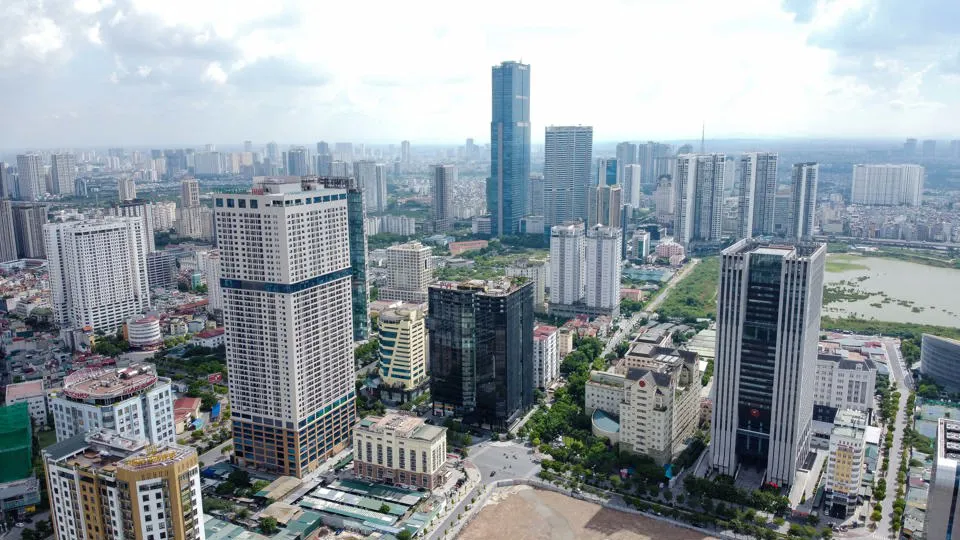Foreign capital pouring into Vietnam's real estate market
Experts are optimistic that the 2024 Land Law, once enacted, will help resolve legal bottlenecks and attract more FDI.
Data from the General Statistics Office (GSO) revealed as of August 31, newly registered capital in the real estate sector reached US$2.4 billion, a fivefold increase compared to the same period last year, accounting for almost 20% of the total new investment capital ($12 billion).
| Hanoi from above. Photo: Huu Thang/The Hanoi Times |
Including both newly registered and adjusted capital, FDI in real estate totaled $2.55 billion, 3.7 times higher than last year, noted the GSO.
In addition, foreign investors contributed nearly $812 million through capital contributions and share purchases in real estate businesses, making up 29% of total capital contributions.
Foreign capital is flowing into various segments such as residential, industrial, commercial, and service real estate, with the residential and industrial sectors standing out, stated the statistics agency.
The first eight months of the year saw several M&A deals between foreign partners and domestic firms. Kim Oanh Group (Vietnam) partnered with Japan's NTT Urban Development, Sumitomo Forestry, and Kumagai Gumi Co Ltd to develop the 50-hectare The One World residential area in Binh Duong. Nishi Nippon Railroad (Japan) acquired 25% of the Paragon Dai Phuoc project (45.5 hectares in Dong Nai) from Nam Long Group for approximately $26 million.
Jack Nguyen, CEO of InCorp Vietnam, in a recent seminar on Vietnam’s economic prospects, noted that Japan, China, and Singapore have been the largest investors in Vietnam in recent years. Chinese investment is focused on large-scale industrial zones to establish supply chains, while Japanese investors are interested in affordable housing, prioritizing companies with "clean" land banks and experience in managing real estate projects.
Trang Bui, CEO of Cushman & Wakefield Vietnam, reported that from late 2023 to mid-2024, the firm recorded around 16 real estate M&A deals.
“Foreign investors are primarily seeking legally clear, high-quality land. A key difference now is that FDI in housing is no longer limited to luxury projects; more international players are entering the affordable housing market,” she said.
Trang pointed out that with global economic uncertainty, emerging markets like Vietnam have become attractive investment destinations. Particularly in the housing sector, returns can reach 8-10% per annum, much higher than the 2-3% seen in neighboring countries.
Cushman & Wakefield forecasts significant foreign capital will flow into Vietnam’s real estate market between 2024 and 2026. However, administrative procedures, legal issues, and a lack of available land remain major barriers to FDI.
Savills Vietnam also reported numerous M&A inquiries from investors in Japan, Singapore, and Taiwan (China). Nevertheless, foreign investors face challenges with administrative procedures, especially in handling land use fees. Finding local partners is also difficult, as there are few projects with complete legal documentation, a key factor for foreign investors during negotiations.
Experts are optimistic that the 2024 Land Law, once enacted, will help remove legal bottlenecks and attract more FDI. The law is expected to provide foreign investors with additional benefits, such as the right to transfer land use rights in industrial zones, industrial clusters, and high-tech zones, as well as the ability to acquire land through real estate project transfers. These new, more flexible regulations are expected to pave the way for a surge in foreign investment in Vietnam's real estate market shortly.












